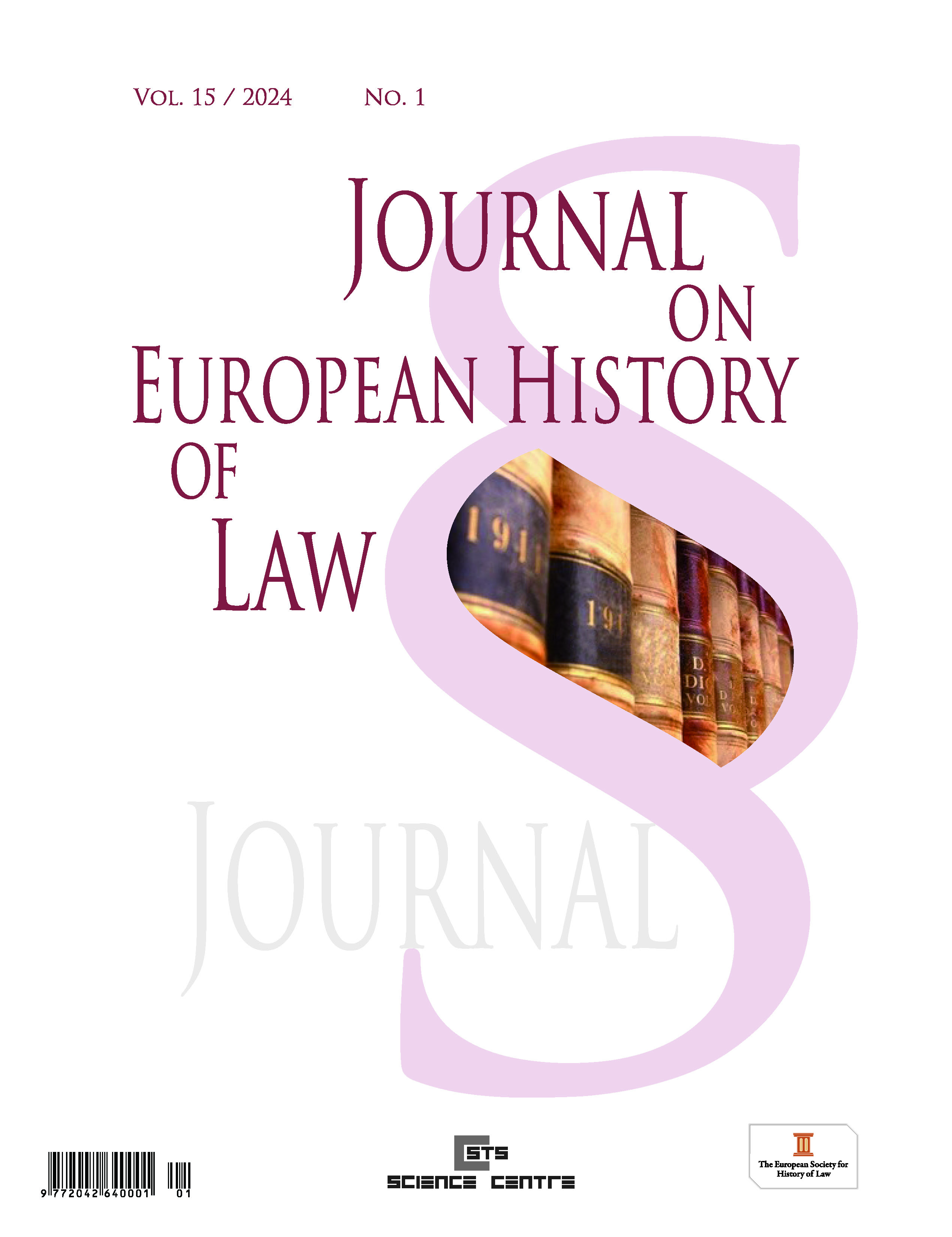Die Rolle des ungarischen Zivilrechts bei der Rechtsvereinheitlichung in der Tschechoslowakei in den Jahren 1918–1948 (unter besonderer Berücksichtigung des Erbrechts)
Role of Hungarian Law in the Unification of Private Law in Czechoslovakia Between 1918–1948 / With Emphasis on Inheritance Law/)
Author(s): Ondřej Horák, Bence Zsolt KovácsSubject(s): Law, Constitution, Jurisprudence, Interwar Period (1920 - 1939)
Published by: Evropská společnost pro právní dějiny, z.s.
Keywords: Unification; Recodification; Civil Law; Inheritance Law; Hungarian Law;
Summary/Abstract: The Paper deals with the importance of the Slovak influence (the role of Hungarian law and Slovak commissions) in the and recodification of civil law in Czechoslovakia for the time period 1918-1948 using the example of inheritance law. Firstly, different approaches in private law legislation after 1918 are presented (discontinuity, compromise, continuity with Hungarian law, continuity with Austrian law). Secondly, attention is paid to the inspiration of Slovak (Hungarian) law in the course of the recodification of inheritance law, which together with family law was one of the areas differing the most in the Czech lands and Slovakia, while receiving the most attention in the literature of the time and compared to other areas of civil law, which also influenced the further legal development the most significantly (Slovak law, the preparation of the Civil Code of 1950, the interwar curricula of 1931 and 1936/37, as well as the preparation of the Civil Code of 2012). In particular, the issues discussed in the so-called Slovak commissions (the Commission for the Civil Law established in Bratislava in 1922 and partly also the Commission under the Justice Commission for the Codification and Unification of Civil Law established in 1946), such as the acquisition of inheritance, incapacity to inherit (crime against the testator, the status of members of religious orders, adulterers and deserters), waiver of the right of inheritance, oral will, testamentary succession, protection of the surviving wife, extraordinary right of inheritance of legatees, determining the value of the gift by collation, transfer of the testator's debts, contract of inheritance, war will, annulment of last will and testament and protection of illegitimate children. The ABGB was chosen as the basis for the recodification, which was only to be modernised (mainly the codification of Austrian law, its applicability to the majority of the population of the new state and its familiarity with Slovak lawyers were the reasons given for the preference of Austrian law), however, the law in force in Slovakia and Carpathian Ruthenia was also to be taken into account. However, the reality was different, and the comments of the Slovak Commissions were only marginally taken into account. The dismissive attitude towards Slovak law and, indirectly, towards Slovak lawyers was also one of the reasons why only partial unification took place in the interwar era and the Civil Code was not adopted in the end. Comprehensive unification of private law, which followed the interwar recodification (albeit to a limited extend), only took place after the communist overturn within the framework of the so-called legal biennium from 1948 to 1950, which took real account of the Slovak legal situation.
Journal: Journal on European History of Law
- Issue Year: 15/2024
- Issue No: 1
- Page Range: 79-92
- Page Count: 14
- Language: German

